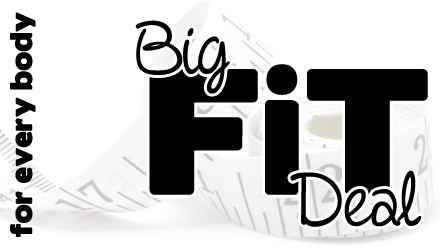Picture it: A beautiful, sunny morning. Not too warm yet. Perfect weather to spend an hour walking miles on the canal path. Which is just what I did. Laced up my sneakers, turned up the music, and hit the pavement. And everything was lovely. Until that thing happened. That thing that happens to me way more than I’d like, and that I’ve talked about here before.
I’m moving along, minding my own business, offering a friendly hello or wave to my fellow exercisers. And this thin girl and her thin male companion run by me. A few feet ahead of me, she pulls off the path to the right to tie her shoe, and he stops, too. I pass them on the left. A few minutes later, they pass me, running along. And as they go by on the left, the girl leans in, sticks out her arm, gives me a thumbs up very close to my face, and says, “Good job!”
 Like this, but less handsome and more in my face.
Like this, but less handsome and more in my face.
My reaction? I laughed (in a shocked way) and said, “Uh, you too?”
They kept on going. I hoped that they’d get caught at the road, and that I could catch up and talk to her about why she felt she needed to encourage me. I would have really liked to have had that conversation. Not in a confrontational way, but in a curious way. We weren’t in a race. I wasn’t wearing a bib number. Because if we were, then I would have had zero problem with her speaking to me. In the middle (or beginning or end) of a race, I want and need that encouragement. But not when I’m out putting in the miles on an average day. She doesn’t know a thing about me or my body, but it’s pretty safe to say she made some big assumptions.
 Disapproving turtle disapproves.
Disapproving turtle disapproves.
Things I spent the next mile wishing I’d had a chance to say to her:
- Why did you feel the need to say that to me?
- Do you think I need your encouragement to keep working out?
- I have eleven half marathon medals!
- I’m a certified personal trainer.
- I work out six days a week.
- Why did you assume I wanted your approval of what I was doing?
- Did you say that to anyone else you passed this morning?
I’m sure that she felt she did a good thing. But as I’ve said before: If you wouldn’t say it to a thin person, then don’t say it to me. She doesn’t know what I do or how often I do it. She doesn’t know what I’m capable of. Just as I don’t know those things about her, or her friend, or anyone else on the path. Now, you can argue that I’m making assumptions about her intentions, and therefore I’m being hypocritical by saying I don’t want her to make assumptions about me. But, really, why do you think she did that? Do you think she says that to everyone she passes? (I didn’t see her speak to anyone else.) Or just the ones who – solely by looking at them – she feels need (or ought) to be encouraged? It reminds me of that post that went viral, about the guy who assumed he knew things about the fat women running the track. The truth is, you do not know anything about the person working out near you.
 Here, have a half marathon medal.
Here, have a half marathon medal.
I know that this opinion can be unpopular, that some people (maybe you) think that words of encouragement are a good thing and should be, well, encouraged. But when that encouragement is based on preconceived notions, assumptions, and prejudices, I believe it does more harm than good. Certainly it does that for me. It’s another challenge I face when it comes to working out in public.
If you ever pass me on the road, by all means raise a hand and say hello. I’ll do the same. And then we can both keep moving.
Update, thanks to an important Twitter conversation about smiling, waving, and saying hello: These are neutral gestures that imply camaraderie without being judgmental. These kinds of reactions to all fellow exercises will go a long way toward making our world friendlier for everyone out there moving along life’s path!


